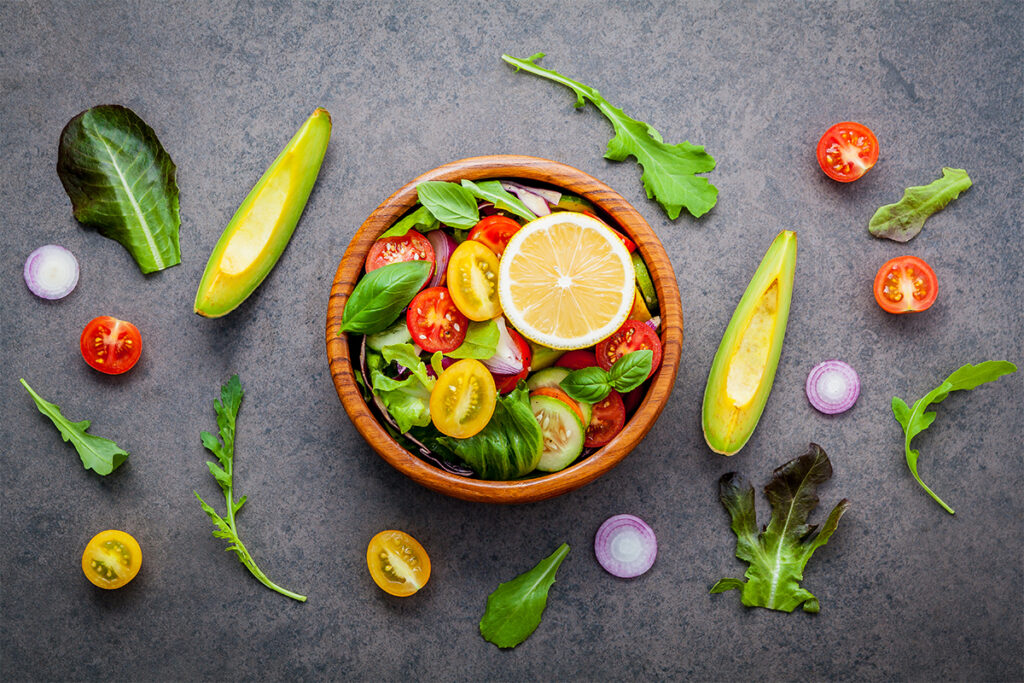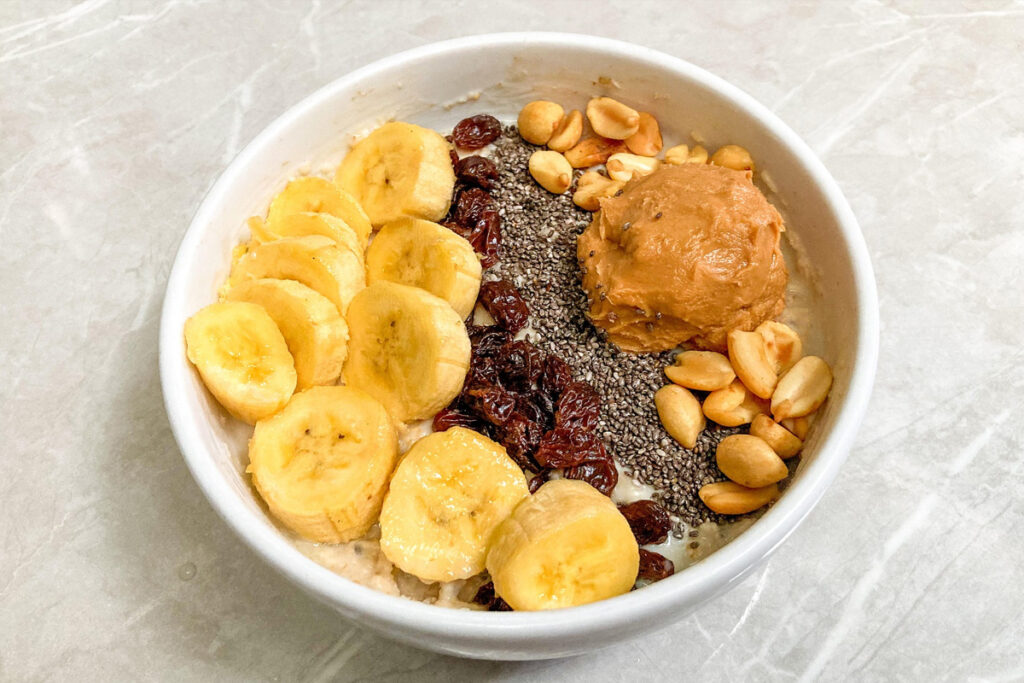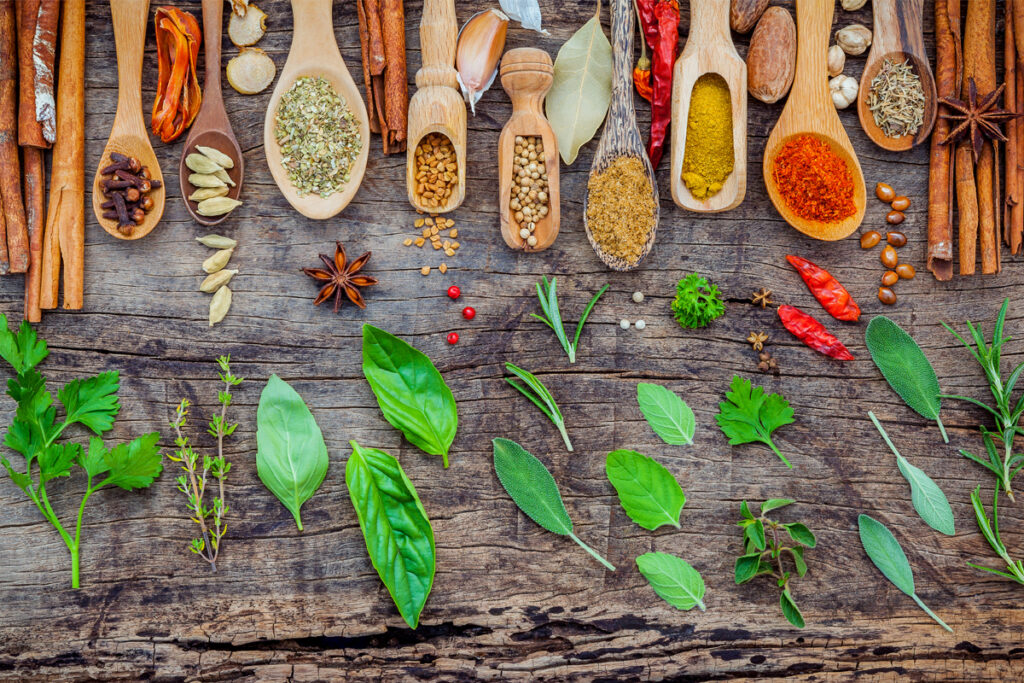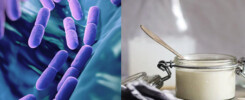Eating a plant-based diet is one of the healthiest things you can do for your body and the environment. And as plant-based diets increase in popularity and acceptance, more and more people are turning to them. Curious about a plant-based diet? Discover what to eat and avoid, plant-based diet benefits for your health and the environment, and ways to implement it into your life for optimal success.
Why Have Plant-Based Diets Become Popular?
Plants are full of the richest sources of nutrients the human body needs in order to thrive. Fruits and vegetables, in particular, provide us with antioxidants, phytochemicals, fiber, enzymes, and essential vitamins and minerals. In other words, plant-based diet benefits come from all the good stuff our bodies need to be healthy and strong.
There’s also an overwhelming amount of research showing that eating more plants and fewer animal products can help prevent or even reverse many of the worst chronic ailments of our time. And if that’s not motivating enough, plant-based diets benefit the environment too. Eating in this way puts a dent in climate change and reduces the incidence of animal suffering and cruelty.

That’s a lot of upsides, right?
It’s no surprise then that interest in adopting a plant-based lifestyle has skyrocketed in the last few years. According to a recent food and health survey conducted by the International Food Information Council Foundation, over half of U.S. consumers are interested in learning more about plant-based diets. And sales of plant-based meats and dairy products are growing exponentially — even outperforming their animal-based counterparts in some cases. I know a lot of people kicking themselves that they didn’t invest in Beyond Meat back in May of this year, given the massive gain in its stock price.
Are you curious about what exactly a plant-based diet is, how to get started, and how to make it stick? If so, you’ve come to the right place. We’ve created this handy plant-based diet beginner’s guide, so you can have all the information you need, right at your fingertips.
What is a Plant-Based Diet?
Eating a plant-based diet means getting most or all of your calories from fresh, whole plant foods that are minimally processed (or even better, not processed at all). Essentially, it is exactly what it sounds like — a diet made of mostly plants.
A plant-based diet can also be vegetarian or vegan, but these diets aren’t necessarily outright plant-based. There are plenty of “junk food vegans” who might not eat animal products, but still consume a variety of processed foods.
To quote Michael Pollan, “If it came from a plant, eat it. If it was made in a plant, don’t.”
Thank you for reading this post, don't forget to subscribe!
What Can You Eat on a Plant-Based Diet?
When picturing what a plant-based meal looks like, fruits and vegetables probably come to mind. And they’re an important part of just about any healthy diet. But you’re not limited to these foods. There are a wide variety of plant foods to enjoy.
The major types of food typically eaten on a plant-based diet include:
- Fruits ― Ex: Apples, berries, kiwis, mangoes, avocado, bananas, jackfruit, etc.
- Vegetables ― Ex: Onions, broccoli, beets, potatoes, mushrooms, carrots, etc.
- Whole grains ― Ex: Quinoa, millet, buckwheat, wheat, rice, corn, etc.
- Beans & legumes ― Ex: Black beans, chickpeas, lentils, edamame, peas, etc.
- Nuts & seeds ― Ex: Almonds, cashews, chia seeds, flaxseeds, walnuts, etc.
- Herbs & spices ― Ex: Turmeric, ginger, cinnamon, oregano, garlic, etc.

What Do You Avoid on a Plant-Based Diet?
However, the main foods you should avoid on a plant-based diet are:
- Most or all animal products (Especially factory-farmed meat, eggs, & dairy products)
- Refined sugars (White sugar, cane sugar, high fructose corn syrup, chemical-based calorie-free sweeteners, etc.)
- Highly processed vegetable oils (Corn oil, cottonseed oil, sunflower oil, peanut oil, soybean oil, etc.)
- White flour (Especially bleached white flour which is full of chemicals and heavy metals ― and virtually devoid of nutrition)
- Junk food (Including most cookies, chips, crackers, snack bars, sweetened drinks, packaged foods, etc.)
source : foodrevolution.org


